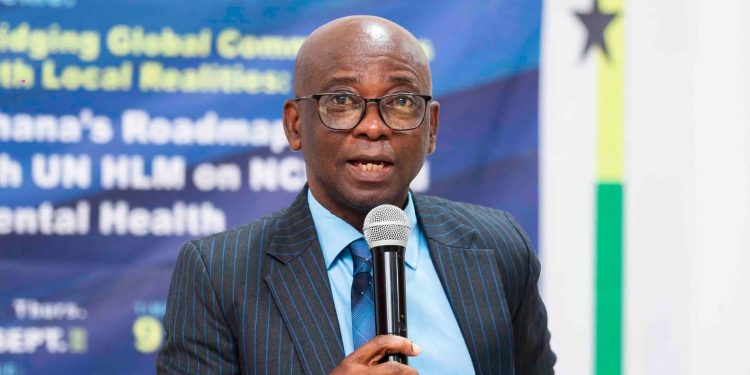Ministry of Health Calls for Urgent Action Against Non-Communicable Diseases at National Strategic Meeting
The Ministry of Health, represented by Chief Director Desmond Boateng, emphasized the critical need for decisive action against non-communicable diseases (NCDs) during the 7th National Strategic High-Level Meeting on NCDs and Mental Health, held in Accra.
Organized in collaboration with the Ghana NCD Alliance (GhNCDA), the event aimed to align local health strategies with global commitments in anticipation of the upcoming 2025 United Nations High-Level Meeting on NCDs and mental health.
With nearly half of all deaths in Ghana attributed to NCDs, including cardiovascular diseases, diabetes, and cancers, the Ministry underscored the urgency of addressing this silent epidemic. “In Ghana, NCDs are now responsible for approximately 45% of all deaths, with the 2023 Ghana STEPS Survey highlighting disturbing trends in tobacco and alcohol use,” stated Boateng.
Presenting a technical report on progress made from previous political declarations (2011-2018) at the meeting, the Ministry outlined Ghana’s national priorities leading up to the 4th UN High-Level Meeting on NCDs. The report highlighted strategic priorities, including the scaling up of implementation of NCDs and Diabetes Compact Strategic Plans, strengthening primary healthcare with integrated mental health services, and ensuring access to essential medicines and technologies.
The report revealed significant progress, with strong national policies and new data systems now in place. However, critical gaps remain in financing, workforce capacity, service integration, and accountability mechanisms.
Key challenges identified included inadequate financing for NCD and mental health services, uneven integration into primary healthcare, and gaps in workforce capacity and retention. The Ministry noted moderate achievements in intersectoral collaboration but emphasized the need for stronger accountability and monitoring systems.
During his address, Boateng called for the transformation of political declarations into actionable health interventions. “Let us turn political declarations into workable health interventions,” stressing that effective policies can substantially mitigate the impact of NCDs on the Ghanaian population. He pointed to existing initiatives, such as the MahamaCare program, as potential frameworks for reversing these concerning trends.
Boateng also acknowledged the necessity of enhancing Ghana’s health infrastructure to improve the detection, management, and prevention of NCDs. He recognized the gaps in early detection and regular health screenings, particularly among vulnerable populations.
The Ministry of Health regards collaboration with civil society as essential in the fight against NCDs. Therefore, Boateng urged civil society organizations to assume a watchdog role, holding the government accountable for its commitments to public health.
The Ministry called for sustained partnerships and coordinated action ahead of the UN High-Level Meeting in 2025 to address these challenges and accelerate progress in tackling Ghana’s growing NCD and mental health burden.








